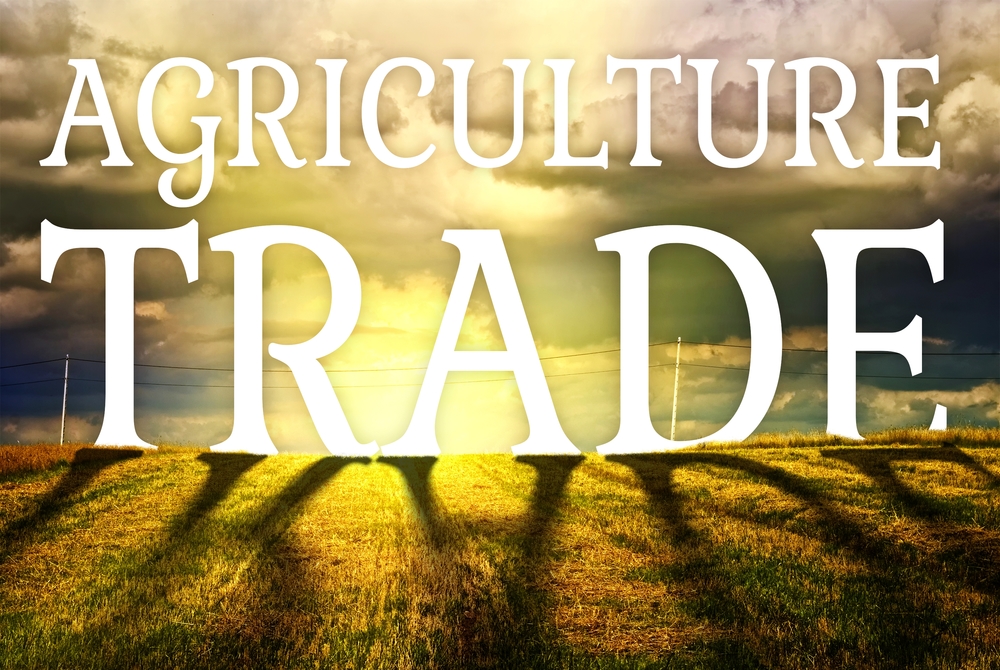Lawmakers from both sides of the aisle are joining farmers and ranchers in calling for the...
Where are the Trade Agreements, Mr. President?

While everyone seems to be focused on higher crop input costs, the largest group of U.S. farmers wants to know when the Biden administration will work on trade talks.
A Tennessee farmer attending the American Farm Bureau Federation’s (AFBF) annual meeting in Atlanta, Georgia, expressed concerns that the Biden administration doesn’t have an undersecretary of trade and has yet to confirm an ag negotiator.
“What happens if China stops buying as much as they have been? What happens if Mexico bans genetically modified corn (GMO)? What are the projections on prices if these (trade) things happen?” the Tennessee farmer asked a panel of AFBF economists.
Because more than 60% of the U.S. ag exports are concentrated in five countries, the U.S. export portfolio is susceptible to disruptions like China’s drop in purchases in 2016, the AFBF economists explained.
“Man alive, you lose China and Mexico in the course of over two years, considering over 40% of all U.S. corn production is exported, the price picture turns south pretty quick,” Veronica Nigh, AFBF Senior Economist says.
Nigh added, “This is why we have to push on the (Biden) administration to say, ‘Thank you for your hardy review (of trade). We appreciate the study, but we are going to need to start seeing some actual action here. The rest of the world is negotiating trade agreements. The Trans Pacific Partnership continued on without us. The rest of the world is forming agreements. We can’t sit on the sidelines.”
Meanwhile, Nigh told the crowd that the AFBF team has been sending letters to President Biden stressing that there needs to be a Phase Two agreement with China. Nigh is afraid that without trade agreements, U.S. farmers will be subject to whims of the market.
The AFBF economists sounded the alarm about the need for the U.S. to get to the trade table in many countries. “Regarding trade agreements, are we in or are we out? What are we doing?” Nigh asks. The U.S. has not been in a real negotiation for quite some time. This (Biden) administration hasn’t made any moves to suggest that it has any deals ready to enter into anytime soon.”
VILSACK ON TRADE
However, USDA Secretary Tom Vilsack made a live appearance at the AFBF convention. Vilsack stacked the topic of exports and trade at the top of his presentation. “I know that 30% of what we (U.S.) grow and raise is ultimately exported around the world. It sends a strong message of the incredible productivity of American agriculture that we can continue to export,” Secretary Vilsack stated.
The USDA leader stressed the importance of rebuilding trust in the U.S. by enforcing the trade agreements that are already on the books. “It starts with China. We all know that with the Phase One trade agreement with China we saw sales increase vs. the trade war. The Chinese are about $16 billion light in what they committed to purchase,” Secretary Vilsack says. Specifically, China bought $57.4 billion of U.S. agricultural products from 2020 through November 2021, which fell short of the $73.9 billion needed to reach the Phase One agreement target.
As a result, U.S. Trade Representative Katherine Tie continues to push China on living up to its trade agreement, according to Vilsack. “We’re going to continue to press China on complete enforcement and implementation of the Phase One agreement before discussing any trade extensions,” Secretary Vilsack says.
Meanwhile, the USDA leader reminded the AFBF’s convention attendees that the U.S. recently opened up pork sales to India; reduced tariffs on corn, wheat, and pork in Vietnam; and is near agreement with Mexico to buy U.S. potatoes.
EDITOR’S TAKE:
The AFBF economists are right, in today’s global trade environment, sitting on the sidelines is not a sound strategy. As noted many times in the AIR, export sales and trade comprise a huge percentage of farm income for most commodities. Right now, other countries are beating us to the punch to set their farmers and products up for success. This needs to be a call to action and it is great to see the country’s largest farm organization leading the charge. Words by the Biden administration, i.e., Ag Secretary Tom Vilsack, while pleasing to hear, must be put into action and the sooner the better. The success of our farmers and ranchers depends on it.








